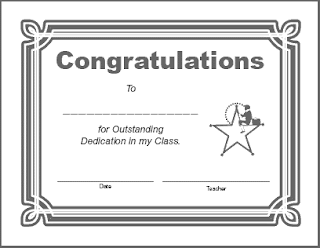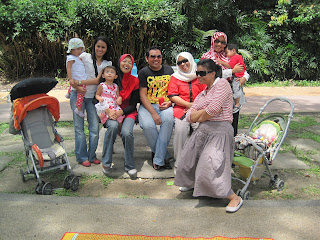At 22 years of age, the question of marriage began to arise in front of my eyes. Seeing my friends having boyfriends, getting engaged and I even attended and took part in the preparation of some of my friends weddings in the UK (Jannah & Nurman's, Neri & Jas', Sameena & Hubby's), it made the question of marriage, or at least, finding someone to get married to got bigger and bigger.
Frankly, I was clueless and had scarce experience with man, with the exception of my dad and three elder brothers. I grew up in all girls school nearly my whole life - Convent Seremban and Tunku Kurshiah College, then venturing in a nearly all-ladies TESOL course in Edinburgh University. I was seriously skeptical whether I could find Mr Right at all.
Nonetheless, I always have strong faith in Mak's advice to me, ever since I 'began to blossom'. Mak always reminded me to train and improve myself to become a good, pure and honest lady, and insha Allah in return, Allah would grant me a good, pure and honest man.
It turns out that Mak is parting her wisdom based on Allah's unambiguous advise;
'Women of impure are for men of impure, and men of impure are for women of empure;
and women of purity are for men of purity and men of purity are for women of purity'
(Q24:26)
 |
| With my extraordinary wise Mak, Zawiah bt Budin. |
Mak also reminded me a few times to find someone compatible before coming back to Malaysia for good. She said that from her observations of the community, it was difficult for ladies to find a compatible partner (and when she says compatible, it means, Muslim, God fearing, single, matured, suitable mental and physical well-being, pleasant; to name a few). For her, finding a husband who has the same academic background, which was studying abroad, would be important for me since both of us had shared the common, or similar experiences, and the man would not feel intimidated of me.
Phew, this was a HUGE assignment! I had a year to complete it... and for me, it seemed to be like an episode of Mission Impossible, with Tom Cruise as the lead actor. (Emmm, having Tom Cruise look alike as a husband would be nice, eh?)
But how Mak? Would there be a secret recipe to find Mr Right? Or would there be a copy of Finding a Husband: Book for Dummies, in the library?
Mak wisely replied, 'You'll know it, and you'll just do it..'
Huhhh?!!!
'The first thing that needs to be done is self-improvement. Remember Allah's promise, 'women of purity are for men of purity and men of purity are for women of purity,'' Mak repeated herself.
And I soon discovered that at that age, when I was still single, I could do lots of things to improve myself, in order for me to 'design' myself as a better muslimah of good strong spiritual uprightness. And that was the first step of the process of looking for Mr Right. Not looking out, but looking into myself.
I have a strong believe that nothing builds a home better than faith and trust. Faith in Allah on one hand, and trust to the partner on the other. My submission is plainly based on Allah's promise in verse 26 of Surah AnNuur.
'Women of impure are for men of impure, and men of impure are for women of empure;
and women of purity are for men of purity and men of purity are for women of purity'
(Q24:26)
Wallahu'alam.










